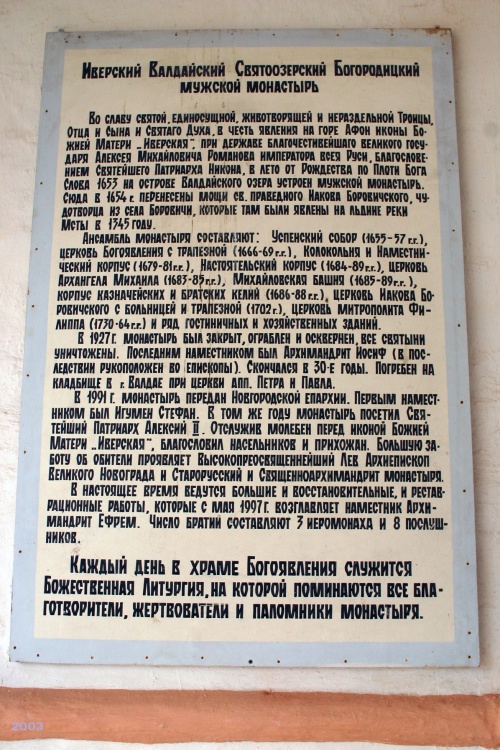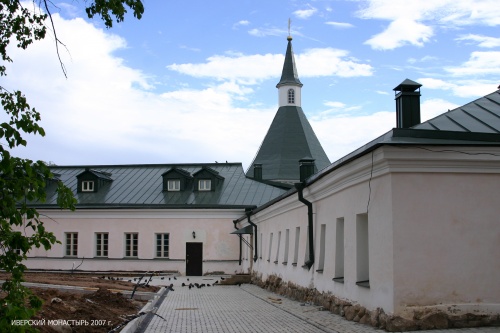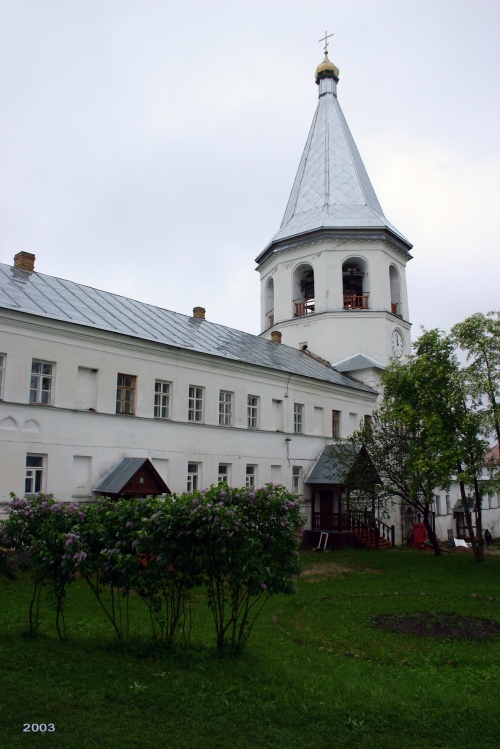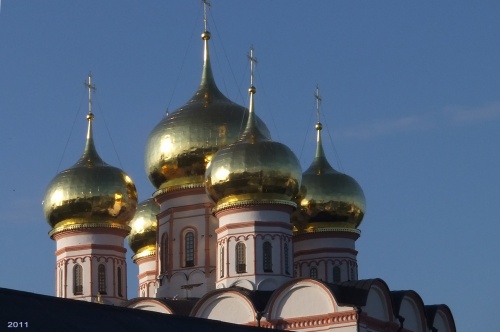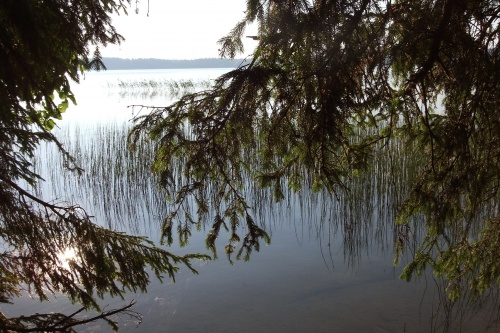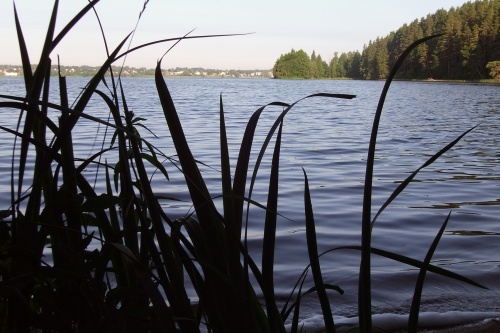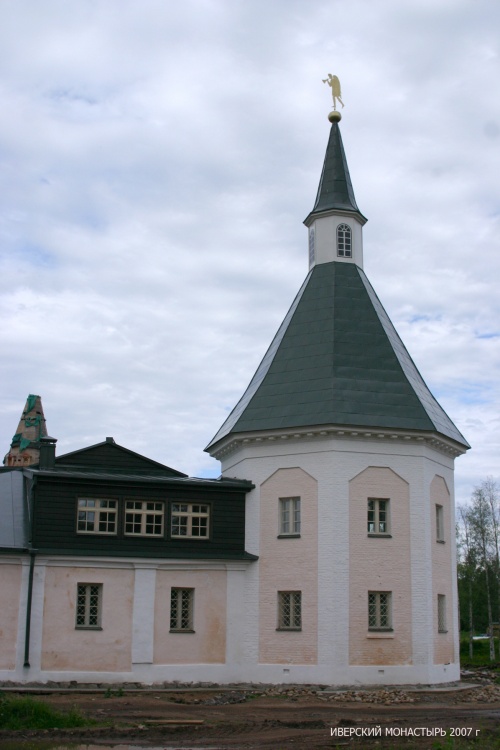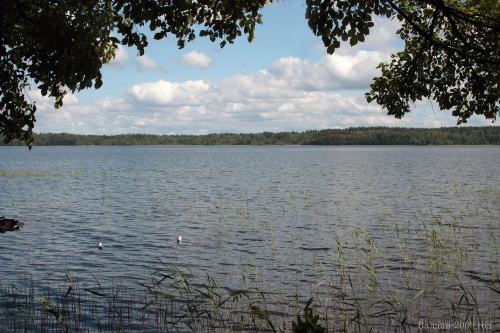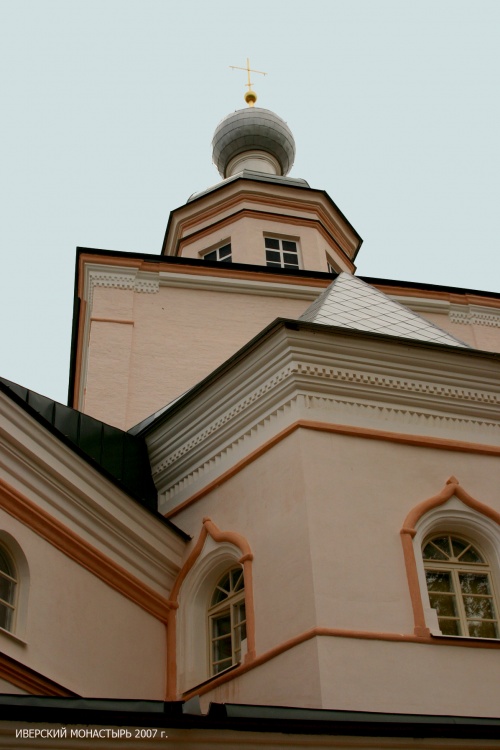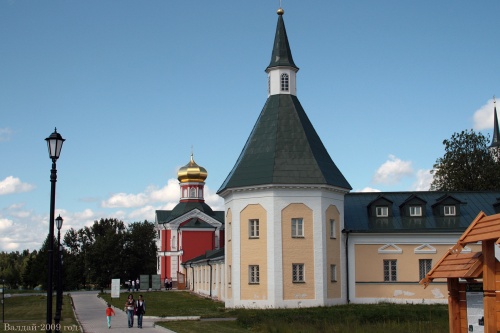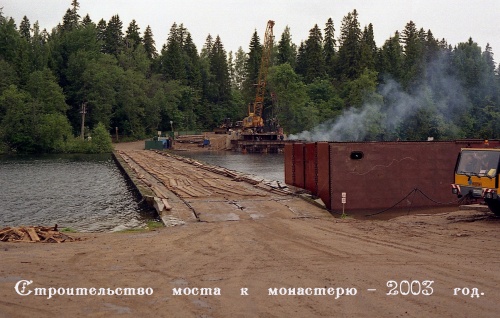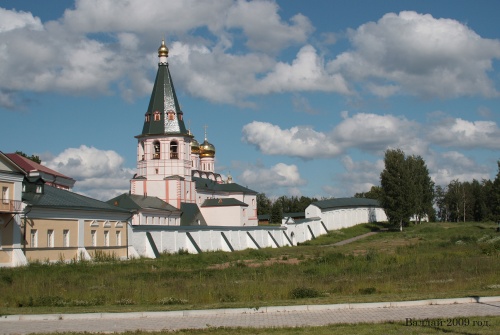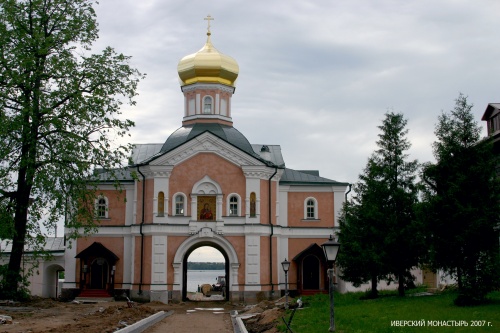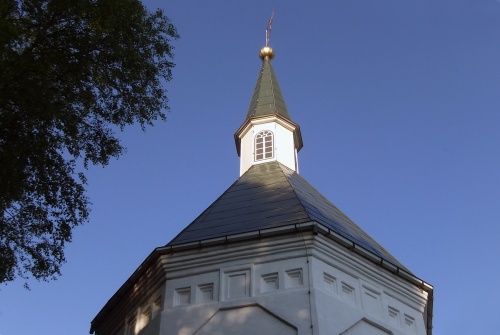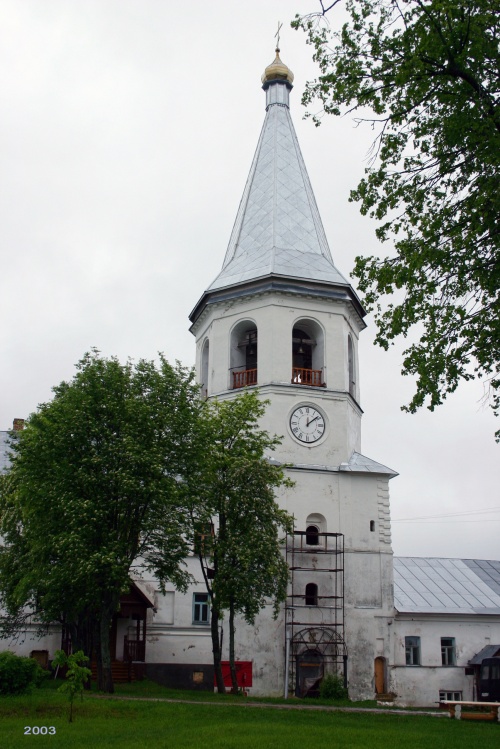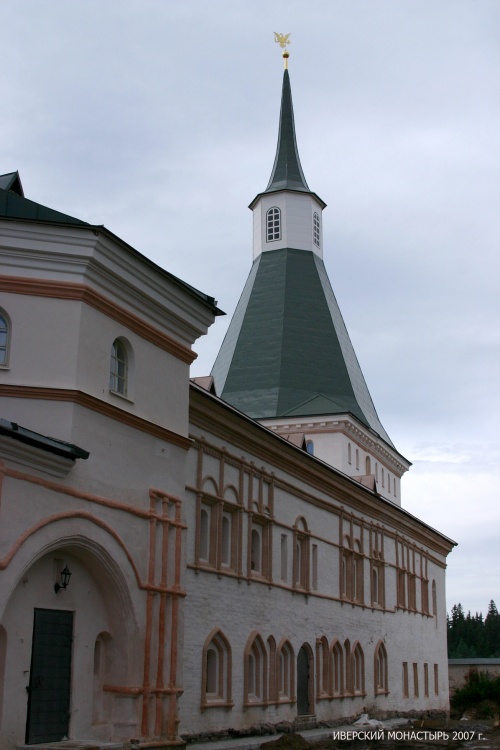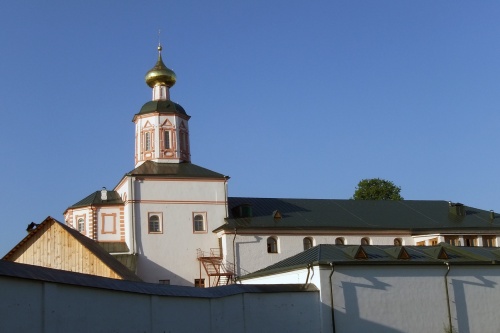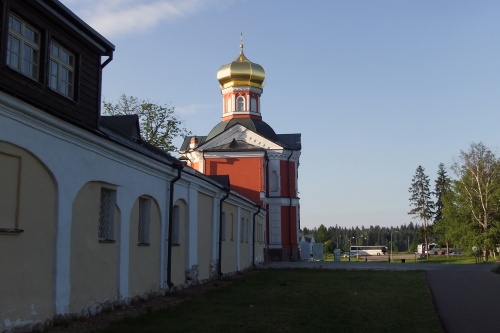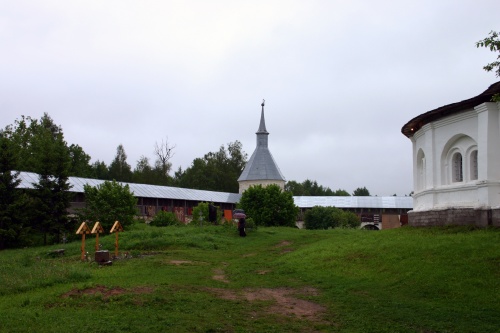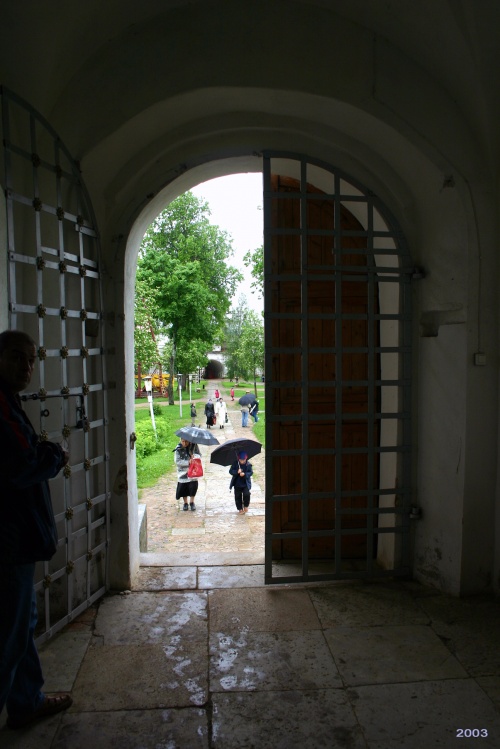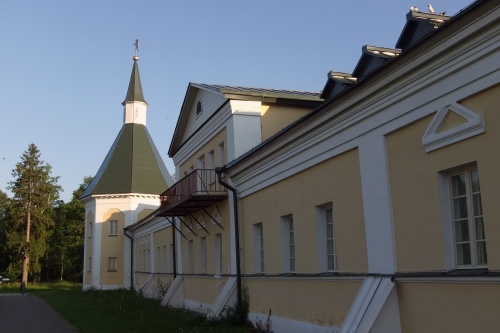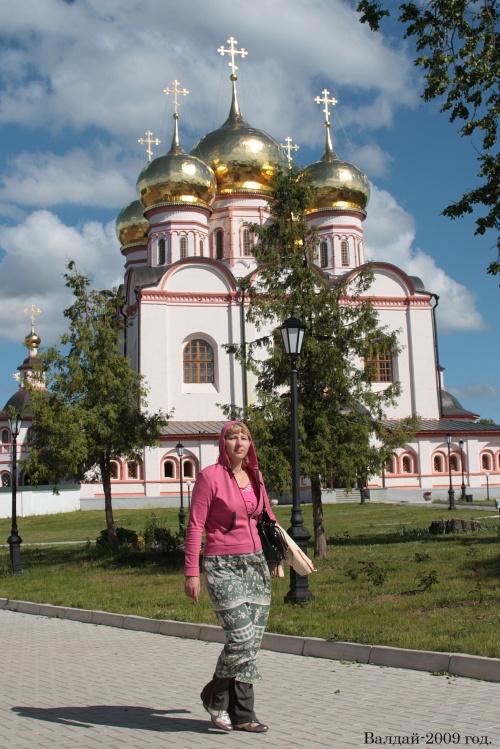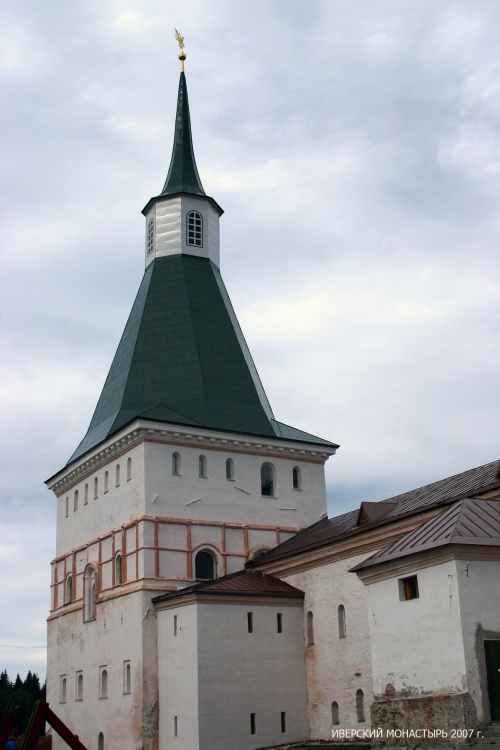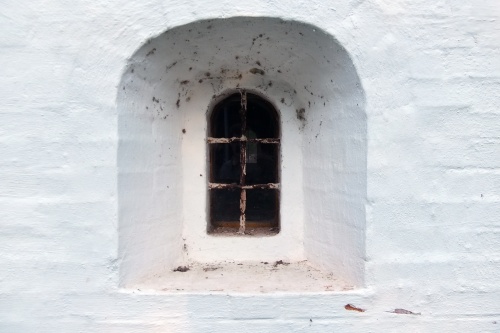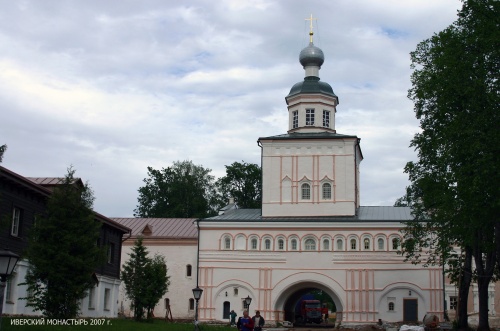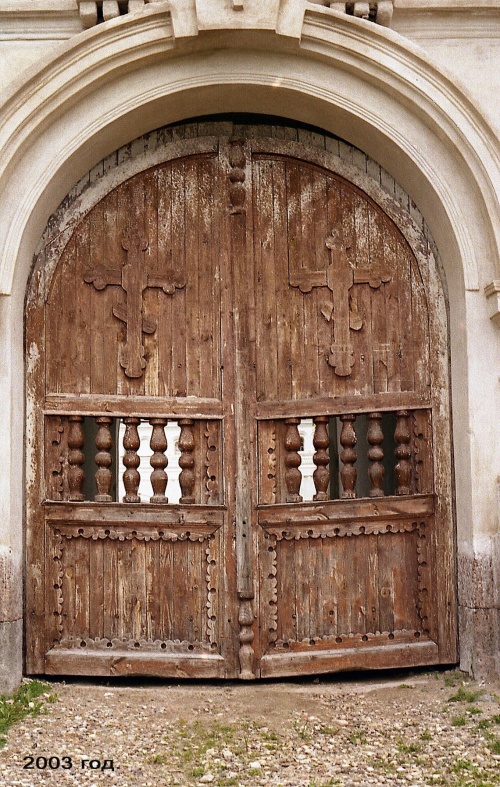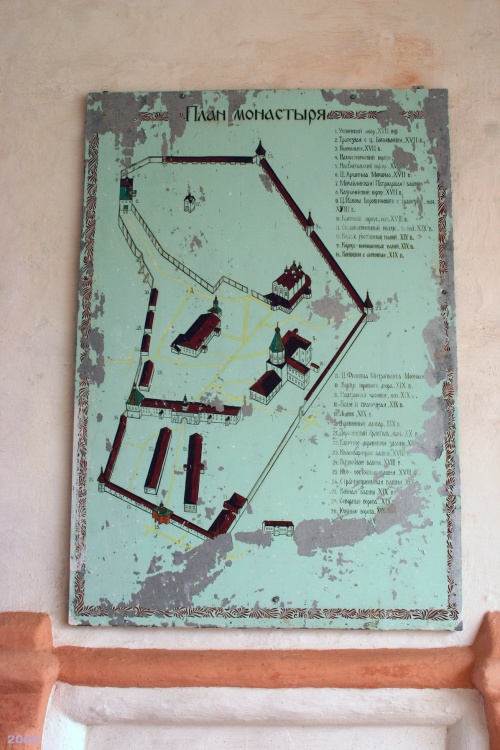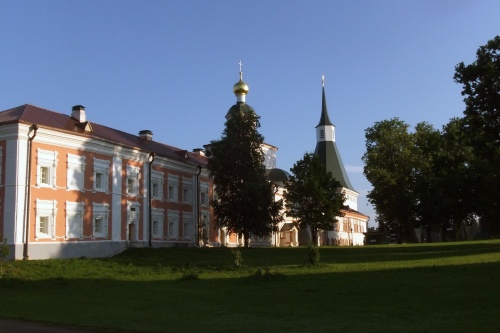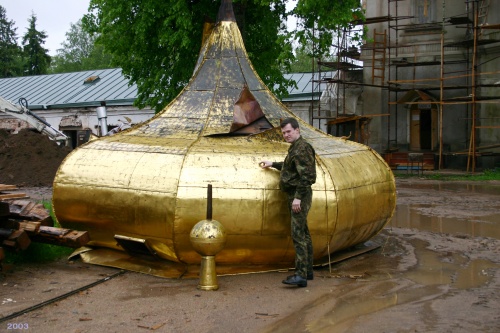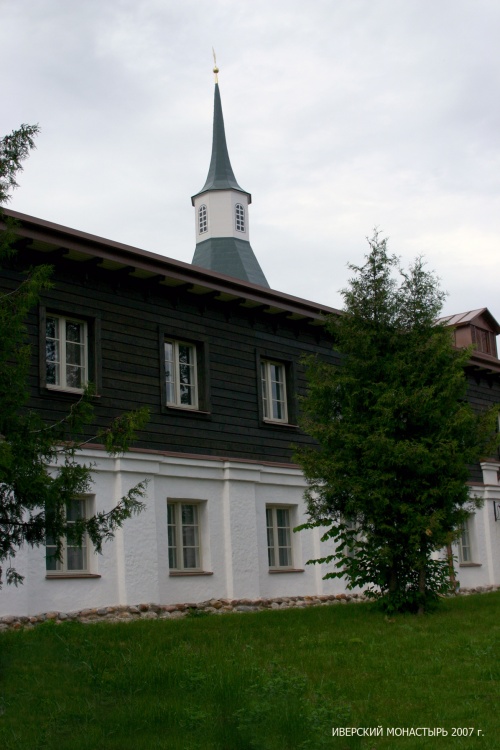Photo excursion - VALDAI (Iveron Monastery) (42 photos)
Story
Having ascended the patriarchal throne on July 25, 1652, Nikon expressed his intention to found a monastery on Lake Valdai to Alexei Mikhailovich. The latter approved the Patriarch's enterprise and allocated funds from the treasury for the construction of the monastery.
Construction began in the summer of 1653, and by the fall two wooden churches were built and ready for consecration. The cathedral church was consecrated in honor of the Iveron Icon, and the warm one - in the name of St. Philip of Moscow. The Patriarch appointed Archimandrite Dionysius as the first abbot of the monastery.
During his first visit to the monastery under construction, Nikon renamed the Valdai settlement into the village of Bogoroditskoye, and also named Valdai Lake Holy, having previously consecrated it and lowered the Gospel and the cross to the bottom. The monastery itself, in addition to its previous name, was called “Svyatoezersk”.
In 1653, under the supervision of the Patriarch, stone construction of monastery churches and buildings began. Nikon himself consecrated the newly created monastery; By order of the Patriarch, in February 1654 the holy relics of Jacob Borovichsky were transferred to the monastery from the Borovichi Monastery.
In May 1654, the royal charter was granted, assigning to the monastery not only Lake Valdai with the islands, but also other estates.
In 1655, the brethren of the Belarusian Orsha Kuteinsky Monastery, more than 70 people, moved to the monastery. Among the inhabitants at that time was the future Patriarch Joachim, as well as Isaac of Polotsk, the brother of Simeon of Polotsk. The monks transported all their property and printing house with them to the new place. With the arrival of the Kutein monks, book printing and bookbinding began to develop.
In 1656, the construction of the Assumption Cathedral was completed. On December 16 of the same year it was consecrated. Together with the Patriarch, Metropolitans of Novgorod Makariy and Sarsky Pitirim, Archbishop of Tver Lavrenty and numerous clergy from various dioceses of Russia arrived at the celebration. The cathedral is distinguished by its simplicity and monumental architectural forms. In 2008, Patriarch Alexy II renamed the Assumption Cathedral into a cathedral in honor of the Iveron Icon of the Mother of God.
By the beginning of the 18th century, the monastery fell into decay. From 1712 to 1730, the monastery with all its property and land was assigned to the Alexander Nevsky Lavra under construction.
In 1919, the monastery was transformed into the Iverskaya labor artel, numbering 70 people, and having 5 hectares of monastery land and 200 hectares of gardens, vegetable gardens, arable land, and pastures.
In 1927, the artel was examined by the People's Commissariat of Agriculture, whose report noted that the labor community was “too closely connected with the Iveron miraculous icon.” The last remark served as the reason for the deregistration of the artel; The monastic community was liquidated, and the Iveron Icon in an expensive frame was taken away to an unknown direction.
Subsequently, on the territory of the monastery there were: a historical and archival museum, a local history museum, workshops, a home for the disabled for participants in the Great Patriotic War, and a forest school for children with tuberculosis.
In the 1970s, a village was created on the island, and a recreation center was opened on the territory of the monastery.
